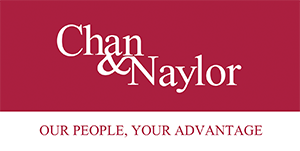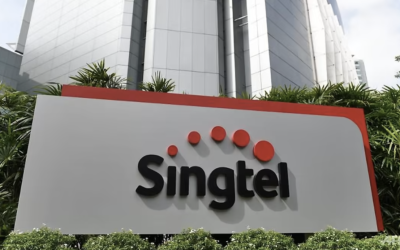Small business owners often interact with the ATO and their tax agent throughout the year. Tax time provides an added opportunity to ensure your tax affairs are in order, obtain essential tax advice and see if you can improve your tax position. You should speak to you specialist business tax accountant especially in areas where more complex tax issues arise. This includes refinanced debt, losses, restructures, capital gains tax, personal services income, trust declarations and distributions, and private company loans.
The last 12-18 months has been a difficult time for small business owners and there has been a range of government grants that may impact your clients. This article will cover:
- Getting Started
- Income
- Deductions
- Tax payable
- Private use of company assets
- Trusts
- Additional tips
Getting Started
Getting the basics right has never been more important – good record keeping, correct account codes, properly accounting for private use, keeping lodgments and payments up to date and declaring all cash transactions are essential to assure yourself, your tax agent and the ATO that your tax affairs are in order.
When keeping your records, make sure to:
- record cash income and expenses
- account for personal drawings and use of company money or assets
- record goods for your own use
- separate private expenses from business expenses
- keep valid tax invoices for creditable acquisitions when registered for GST
- keep adequate stock records
- keep adequate records to substantiate motor vehicle claims.
Contact the ATO to rectify any errors or mistakes. If you make a voluntary disclosure, you can generally expect a reduction in the administrative penalties and interest charges that would normally apply. Your tax agent is required to take reasonable care when preparing your return, which means they may ask you detailed questions about your cashflow, business performance, personal use of assets and records.
Income
Covid-19 and disaster payments
Many businesses received COVID-19 or other disaster-related support from government during the year. The ATO has published information on the tax treatment of a range of federal, state, territory and local government assistance packages. You should also check the tax treatment of disaster assistance payments.
Personal services income rules
Personal services income (PSI) is income produced mainly from your personal skills or efforts as an individual. It commonly includes medical practitioners, construction workers, financial professionals, and IT consultants. You need to check whether the PSI rules apply or whether you’re running a personal services business (PSB). Once you determine the PSI rules apply, you’ll need to attribute PSI to each individual who produced the income and ensure that you are withholding correctly.
The ATO is also looking at the allocation of profits within professional firms.
We recommend seeking professional advice on issues related to personal services income, personal services business and profit allocation.
Deductions
Optimise depreciation deductions
There are several ways you can depreciate your assets and many businesses use the simplified depreciation rules.
- Temporary full expensing allows eligible businesses to immediately deduct the full cost of eligible assets. The assets must be first held, and first used or installed ready for use for a taxable purpose by 30 June.
- If you are a small business that chooses to use the simplified depreciation rules, you apply the temporary full expensing rules with some modifications. This includes deducting the balance of your small business pooll at the end of the income years ending between 6 October 2020 and 30 June 2023.
- If an asset isn’t eligible for temporary full expensing, the asset will be allocated to the general small business pool and depreciated at the appropriate rate, depending on if it is eligible for accelerated depreciation.
- If you purchase a car for your business, the car limit is $60,733 for the 2021–22 income tax year. You cannot claim the excess cost of the car under any other depreciation rules.
Trading stock
Many small businesses use the simpler trading stock rules. However, supply chain disruptions mean that many inventories have varied by more than $5000, requiring a stocktake using the general trading stock rules. Consider which of the three valuation methods is most suitable for your business.
Write off bad debts
Businesses can claim a deduction for bad debts when various conditions are met. Examples include where the debtor cannot be traced, the debtor is in liquidation or receivership, there are insufficient funds or assets to satisfy the debt or there is little or no likelihood of the debt being recovered.
Certain additional requirements must be met where the creditor is either a company or trust. Special rules apply for private companies with debts related to shareholders or an associate of a shareholder.
Small Business Technology Investment and Skills & Training boosts
Two new deduction measures were announced in the 2022-23 Budget:
Small Business Technology Investment Boost: an additional 20 per cent deduction available for the cost of business expenses and depreciating assets up to $10,000 that support digital adoption, such as portable payment devices, cyber security systems or subscriptions to cloud based services
Small Business Skills & Training Boost: an additional 20 per cent deduction available for expenditure incurred on eligible training courses provided to employees. However, these measures are not yet law and if the incoming government does not proceed with these measures, then you will not be able to claim the additional 20 per cent deduction.
To claim for eligible expenditure incurred between 7:30 pm AEDT 29 March 2022 until 30 June 2022:
- claim the expenses as usual in your 2021–22 tax return, and
- claim the additional 20% bonus deduction for this period in your 2022–23 tax return.
Tax Payable
Company tax rate
Most companies with an aggregated annual turnover of less than $50 million will pay tax at 25 per cent in 2021–22. However, companies with more than 80 per cent of income from passive investments will continue to pay tax at 30 per cent. In line with the changes to company tax rates, there have also been changes to the franking rules, which affects the allocation of franking credits.
Losses
Businesses may find themselves in a taxable loss position or seek to use prior-year losses when their business performance changes. Different loss rules apply depending on the business structure.
Partnerships distribute the loss proportionately to each partner, while trust losses can’t be distributed to beneficiaries. Companies are subject to rules such as same majority ownership and control, same business test or similar business test.
Eligible companies with a taxable loss may be able to claim the loss carry back tax offset. As it is a refundable tax offset, it may result in a cash refund, a reduced tax liability or a reduction of a debt owing to the ATO. The ATO will be checking franking accounts to ensure the offset is claimed correctly.
We recommend seeking professional advice on issues like the loss tests, loss carry back tax offset, the effect of capital injections on continuity of ownership tests and unrealised losses from reductions in asset values.
CGT concessions
In addition to the more widely available CGT concessions, small businesses can access the following specific concessions:
- 15 year-exemption
- 50 per cent active asset reduction
- retirement exemption
- rollover
- restructure rollover.
You can apply as many concessions as you’re entitled to until the capital gain is reduced to nil. There are rules about the order in which you apply the concessions, any current year or prior year capital losses, and the CGT discount. The rules are complex and getting it wrong can be costly, so we recommend seeking advice before restructuring or disposing of assets and ensuring your business structure is designed to take advantage of the available concessions.
Private use of company money or assets
There are rules around taking money out of your business or using its money or assets for yourself and your family. The private use of company money or assets is a focus area for the ATO and the consequences of getting it wrong can be costly.
Common ways to take or use money or assets from a company or trusts are:
- salary and wages
- fringe benefits
- director fees
- loans from the company
- trust distributions or company dividends
- allowances or reimbursements.
Depending on how the money or assets are extracted or used, there are a range of associated tax obligations. We recommend seeking professional advice to ensure that you are reporting correctly and keeping appropriate records.
Trusts
Trustees of discretionary trusts are required to prepare and document resolutions on how trust income should be distributed to beneficiaries for the 2021–22 financial year by 30 June. If a valid resolution is not executed by 30 June, there may be significant tax consequences including the trustee being taxed at 45 per cent. Trustees of discretionary trusts may also be able to stream capital gains and franked dividends to different beneficiaries but be aware that the streaming rules are complex.
There are rules for unpaid distributions owed by a trust to a related private company beneficiary and where a beneficiary’s entitlement arises out of a reimbursement agreement. The ATO has recently issued draft guidance on reimbursement agreements and unpaid present entitlements. We recommend that you seek professional advice to understand how this impacts you.
Additional Tips to consider
Single Touch Payroll
Employers need to make a finalisation declaration by 14 July 2022 so that employees can access their tax-ready income statements. Before finalising, make sure the STP information is correct and apply for a deferral if you need more time.
Superannuation guarantee
Ensure superannuation guarantee payments for employees are up-to-date and make sure contributions are received by the nominated super funds by 30 June. Report and rectify any missed payments to the ATO. If you do not pay an employee’s super guarantee on time and to the right fund, you must lodge a superannuation guarantee charge (SGC) statement and pay the SGC to the ATO.
The SGC is not tax-deductible and there are significant administrative charges, fees and penalties. It’s therefore important to ensure that you’re paying superannuation guarantee correctly throughout the year.
Taxable payments reporting system
Does your business earn income from building and construction, cleaning, courier, road freight, information technology, security, investigation, or surveillance services? If so, you may need to lodge a taxable payments annual report by 30 August 2022 to report payments made to contractors. The details you need to report are generally contained in the contractors’ invoices and include ABN, name, address and total amounts paid for the financial year.
GST adjustments
When you do a tax return for your business, your tax agent will often do a reconciliation against your GST accounts. This can identify misclassified transactions or unclaimed credits which will need to be fixed. The ATO has worksheets to assist in calculating GST adjustments for sales, purchases, bad debts, creditable purpose and adjustments summary.
Businesses in financial distress
There are tax obligations to consider when deregistering a company and the ATO provides information for businesses in financial difficulty. Individuals facing serious financial hardship can apply for release from their tax debts.
If you think your business is in financial difficulty, it is critical to get proper accounting and legal advice as early as possible.
General Advice Warning
The material on this page and on this website has been prepared for general information purposes only and not as specific advice to any particular person. Any advice contained on this page and on this website is General Advice and does not take into account any person’s particular investment objectives, financial situation and particular needs.
Before making an investment decision based on this advice you should consider, with or without the assistance of a securities adviser, whether it is appropriate to your particular investment needs, objectives and financial circumstances. In addition, the examples provided on this page and on this website are for illustrative purposes only.
Although every effort has been made to verify the accuracy of the information contained on this page and on this website, Chan & Naylor, its officers, representatives, employees, and agents disclaim all liability [except for any liability which by law cannot be excluded), for any error, inaccuracy in, or omission from the information contained in this website or any loss or damage suffered by any person directly or indirectly through relying on this information.





